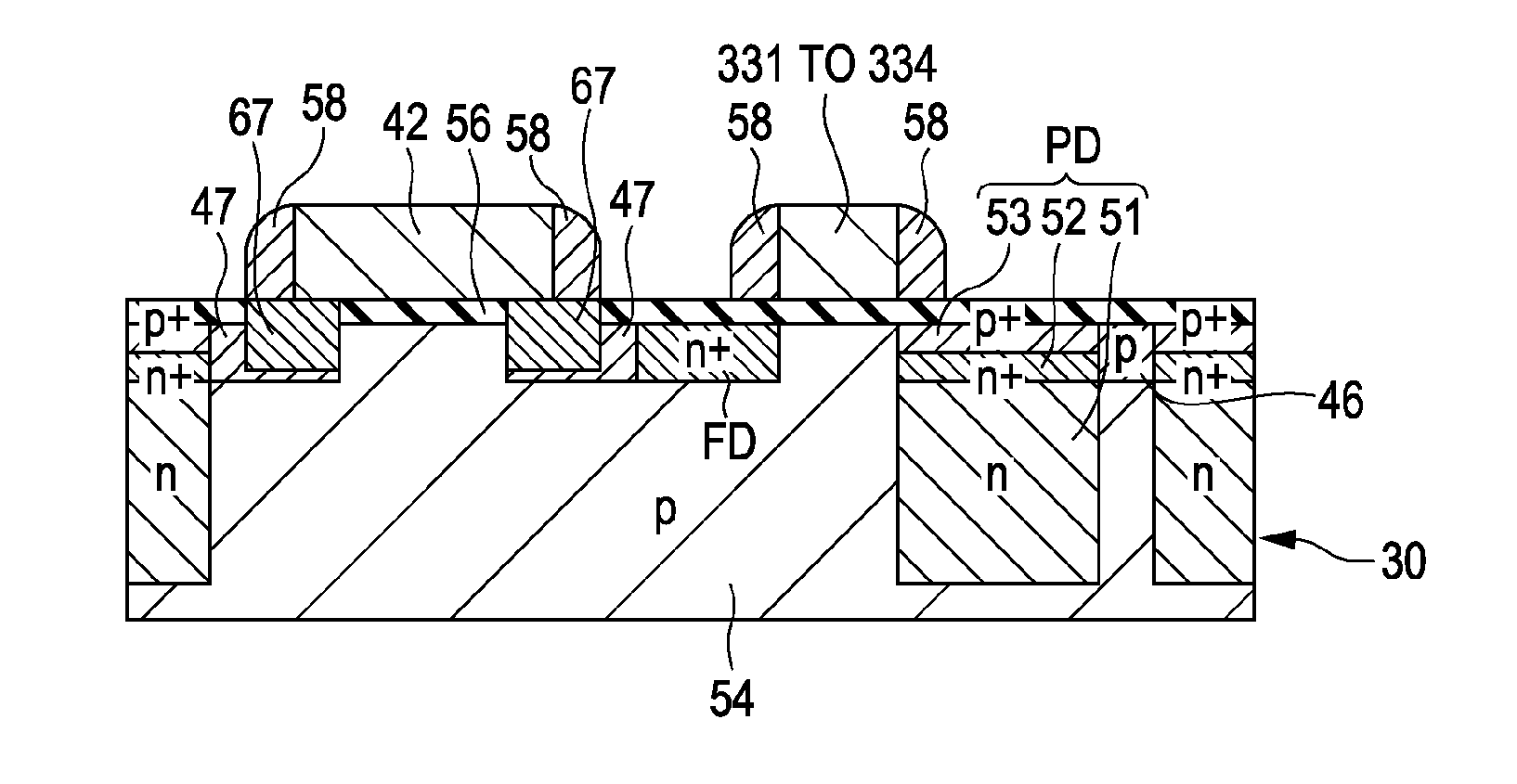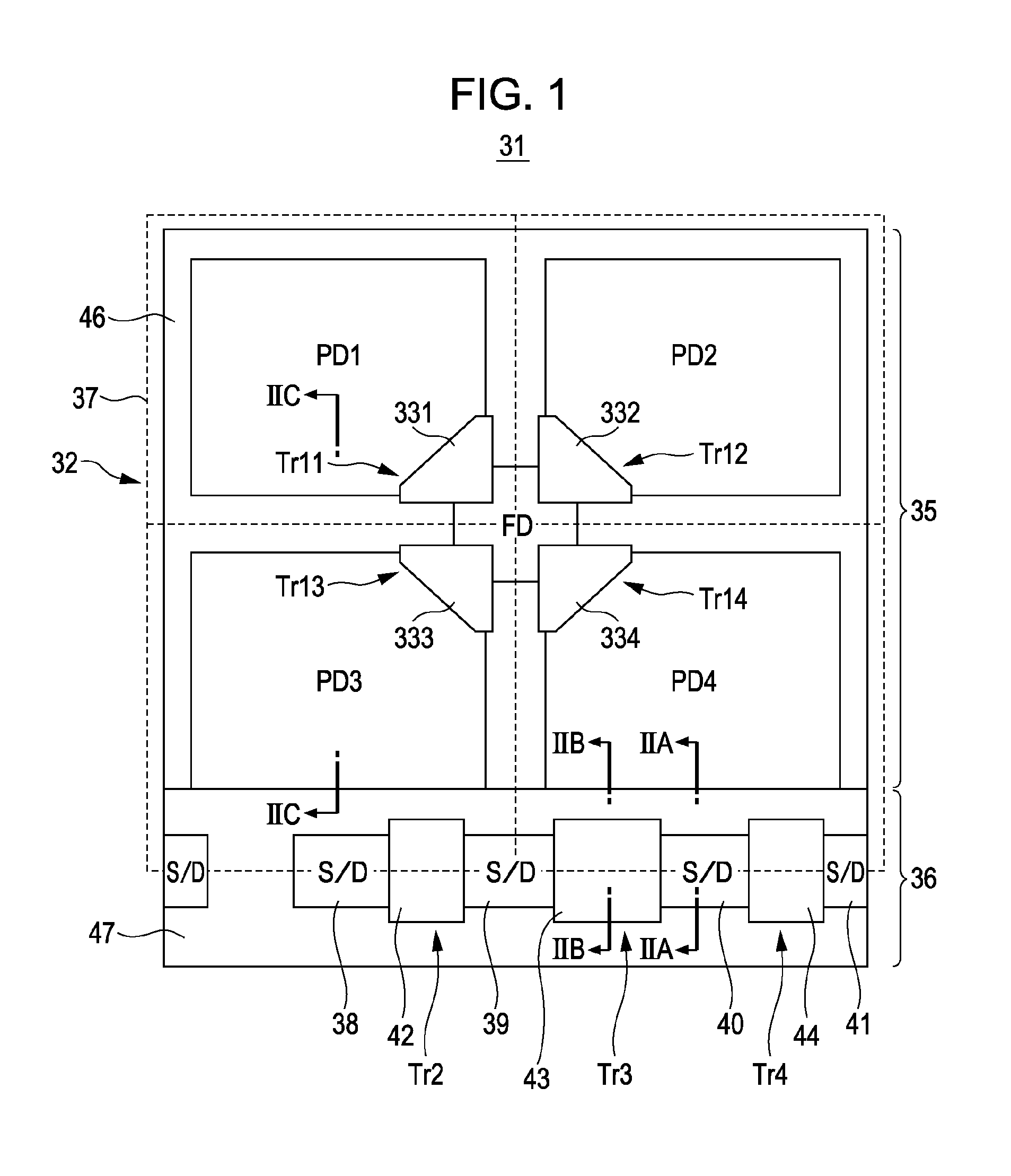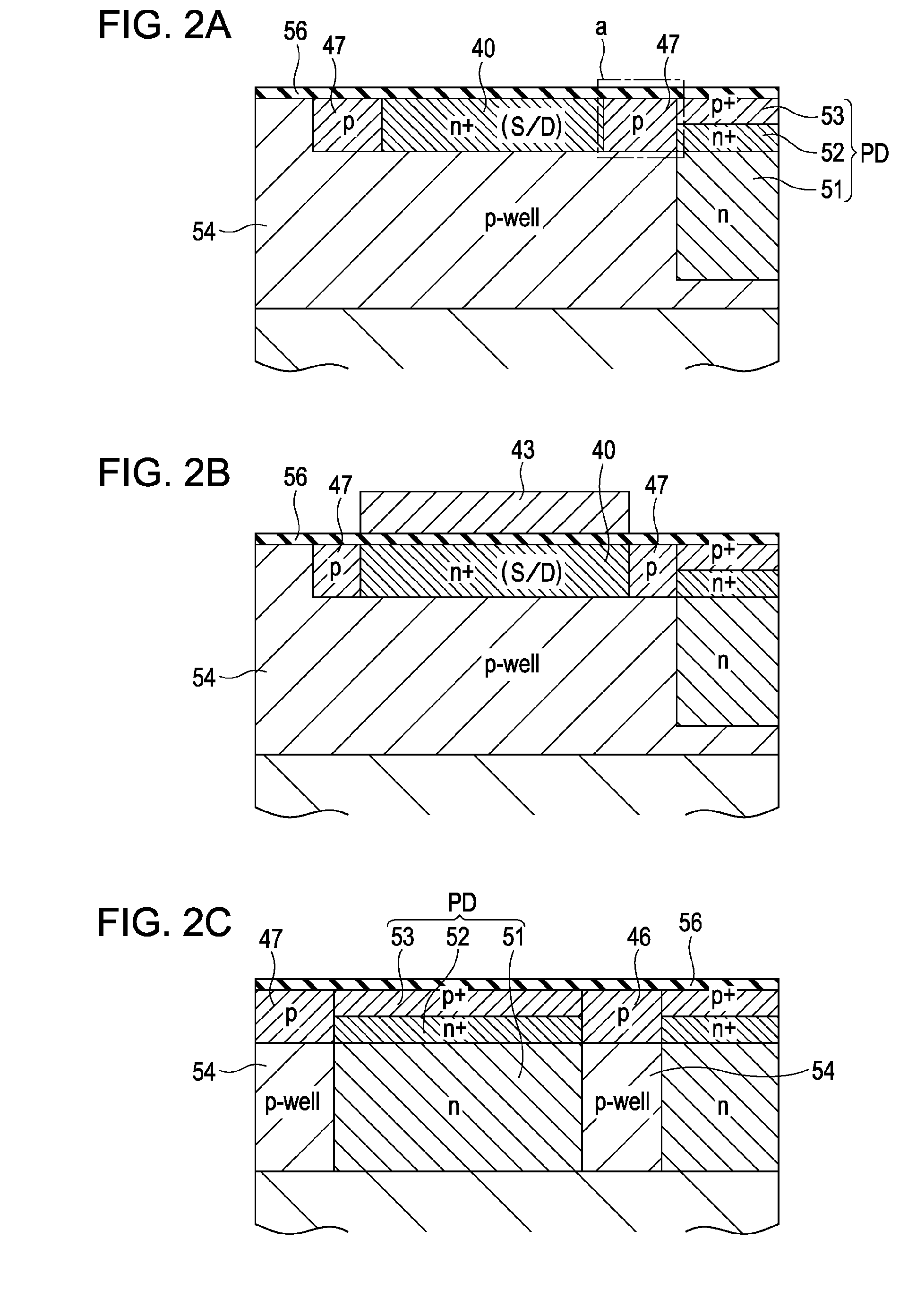Solid-state imaging device, method of manufacturing the same, and electronic apparatus
a solid-state imaging and imaging method technology, applied in the direction of radio frequency controlled devices, instruments, transistors, etc., can solve the problems of increasing the electric field intensity of the p-n junction portion, difficult to obtain a sufficient saturation characteristic, and inability to obtain a sufficient area for the photodiodes, so as to reduce the width of the first isolation region, increase the area of the photodiode, and achieve the effect of sufficient isolation
- Summary
- Abstract
- Description
- Claims
- Application Information
AI Technical Summary
Benefits of technology
Problems solved by technology
Method used
Image
Examples
first embodiment
2. First Embodiment
Exemplary Structure of Solid-State Imaging Device
[0079]FIGS. 1 and 2C illustrate a solid-state imaging device according to first embodiment of the present invention. In the present embodiment, a CMOS solid-state imaging device may be applied in which a so-called 4-pixel sharing unit, where 2 horizontal pixels×2 vertical pixels constitute a unit, is arranged in two dimensions. As shown in FIG. 1, in the solid-state imaging device 31 according to the first embodiment of the invention, a pixel portion is constructed by arranging the 4-pixel sharing unit 32 in two dimensions, and the 4-pixel sharing unit 32 is obtained by arranging four photodiodes PD [PD1 to PD4] which are the photoelectric conversion portions of four pixels. The 4-pixel sharing unit 32 share four photodiodes PD and a single pixel transistor group other than the transfer transistors. Specifically, in the 4-pixel sharing unit 32, a single floating diffusion region FD is shared by four photodiodes PD1 ...
second embodiment
3. Second Embodiment
Exemplary Structure of Solid-State Imaging Device
[0113]FIG. 7 illustrates the solid-state imaging device according to the second embodiment of the present invention. In the present embodiment, as described above, a CMOS solid-state imaging device may be applied in which a so-called 4-pixel sharing unit, where 2 horizontal pixels×2 vertical pixels constitute a unit, is arranged in two dimensions. As shown in FIG. 7, in the solid-state imaging device 61 according to the second embodiment of the invention, a pixel portion is constructed by arranging the 4-pixel sharing unit 32 in two dimensions, and the 4-pixel sharing unit 32 is obtained by arranging four photodiodes PD [PD1 to PD4] which are the photoelectric conversion portions of four pixels. As described above, the 4-pixel sharing unit 32 includes the photodiode formation area 35 and the pixel transistor formation area 36, and the first and second isolation regions 46 and 47 are formed from the p-type impurity ...
third embodiment
4. Third Embodiment
Exemplary Structure of Solid-State Imaging Device
[0121]FIG. 8 illustrates a solid-state imaging device according to a third embodiment of the present invention. In the present embodiment, as described above, a CMOS solid-state imaging device may be applied in which a so-called 4-pixel sharing unit, where 2 horizontal pixels×2 vertical pixels constitute a unit, is arranged in two dimensions. As shown in FIG. 8, in the solid-state imaging device 63 according to the third embodiment of the invention, a pixel portion is constructed by arranging the 4-pixel sharing unit 32 in two dimensions, and the 4-pixel sharing unit 32 is obtained by arranging four photodiodes PD [PD1 to PD4] which are the photoelectric conversion portions of four pixels. As described above, the 4-pixel sharing unit 32 includes the photodiode formation area 35 and the pixel transistor formation area 36, and the first and second isolation regions 46 and 47 are formed from the p-type impurity semicon...
PUM
 Login to View More
Login to View More Abstract
Description
Claims
Application Information
 Login to View More
Login to View More - R&D
- Intellectual Property
- Life Sciences
- Materials
- Tech Scout
- Unparalleled Data Quality
- Higher Quality Content
- 60% Fewer Hallucinations
Browse by: Latest US Patents, China's latest patents, Technical Efficacy Thesaurus, Application Domain, Technology Topic, Popular Technical Reports.
© 2025 PatSnap. All rights reserved.Legal|Privacy policy|Modern Slavery Act Transparency Statement|Sitemap|About US| Contact US: help@patsnap.com



